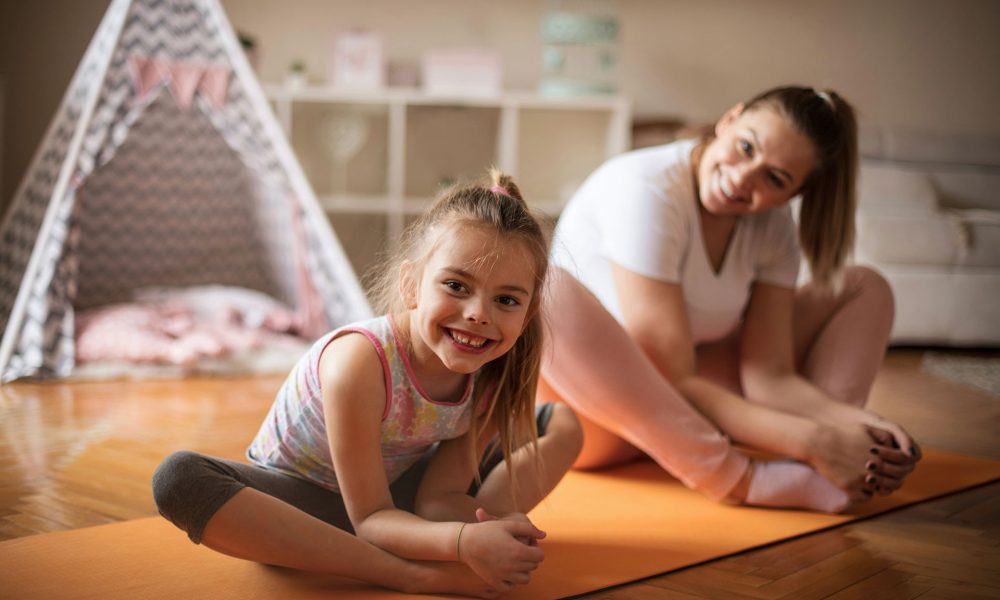eTeaching kids to meditate is just like teaching them any key life skill, it’s all about making it joyful, practical, and approachable. When kids learn how easy and fun meditation can be and how much it contributes to their sense of self and ability to care for themselves, they’ll be set on a path to become lifelong meditators. Embracing the Benefits of Meditation for Kids can transform everyday moments into opportunities for developing focus and resilience.
Table Of Content
Each time that a child meditates, they’re taking a productive break from any bits of chaos from their minds or the external world, so there’s no time like the present to introduce your child to meditation today!
The benefits of meditation for children, such as its power to help children manage their emotions and build their self awareness and confidence, are made available and fun in guided meditations for kids. Siddha Meditate offers a range of Guided Meditations for Kids that use storytelling and sensory based enrichment to engage and excite even little kids and toddlers, helping your child to stay engaged in their practice and find the practices that work best for them.
What Are the Key Benefits of Teaching Kids Meditation from an Early Age?
While meditation is often seen as a practice of sitting in silence for extended periods of time, it is so much more than that. Meditation is the practice of centering the mind on an activity, prompt or simply our breath to reactivate and train the brain. These exercises teach and allow kids to experience the benefits of mindfulness for children by instructing them to release the judgements and stresses that arise in their practice, helping to ground themselves in affirming and healthy self-talk patterns.
How Does Meditation Work in a Child’s Brain?
Meditation, as a practice founded on a person’s ability to center and calm the mind, is proven to extend children’s attention spans and alleviate symptoms of ADHD by teaching the mind to let go of distracted thoughts, even outside of guided meditations. A team of Italian psychologists found that meditation helps to reduce the internalization of stress in early elementary aged children, helping them to put their causes of anxiety into perspective, thus reducing their feelings of anxiety overall.
These findings underscore the Benefits of Meditation for Children, revealing how focused mindfulness practices nurture enhanced concentration and emotional resilience in young minds.
Why Meditation Matters for Your Child
Meditation matters for your child because it offers a simple yet powerful way to build focus, self-awareness, and resilience. By providing a quiet space for reflection, meditation helps kids manage their emotions and develop a balanced outlook on life. Recognizing the Benefits of Meditation for Children can set the stage for a healthier, happier mindset as they grow.
In a world filled with constant distractions and stress, meditation equips your child with the tools to pause, reflect, and reset. This practice not only enhances concentration but also nurtures creativity and calm, making it easier for children to navigate everyday challenges. Understanding How Meditation Benefits Kids empowers parents to cultivate habits that support lasting emotional and cognitive growth.
What Age Should Kids Start Meditating?
It is never too early or late to introduce your child to meditation, as children of all ages will experience benefits of meditation for kids. But introducing your child to meditation before or around age seven can help your child to seamlessly adjust to meditation and fall in love with their regular practice.
- Young kids and toddlers can have an easier time latching on to a habit of meditation, as they are less likely to be influenced by skepticism around meditation and are less likely to get distracted by the temptation of screen time.
- The benefits of guided meditation for children, such as its ability to help them develop a sense of imagination, suit the interests of younger kids by telling detailed and fun stories and encouraging play.
- Starting your child’s meditation journey early makes it easy for them to incorporate meditation into their daily routine, helping meditation to fit seamlessly into their constantly changing lives.

How to explain meditation to children?
Explaining meditation to children can be as simple as comparing it to taking a quiet, imaginative break during their day. You might tell them that meditation is like a pause button for the brain—a chance to feel calm, think happy thoughts, or imagine a peaceful place. This explanation helps them understand the Benefits of Meditation for Kids, like improved focus and a lighter mood, without making it sound too complicated.
When you talk about meditation, use familiar examples that resonate with their everyday experiences. For instance, you could say, “Meditation is like your superhero moment that helps you feel brave and calm even when things get busy.” This friendly explanation shows them that Understanding How Meditation Benefits Kids means they can create a little space in their day to relax and recharge. By practicing simple breathing techniques or visualizing a favorite story, children enjoy the Benefits of Mindfulness for Children, making meditation a fun and valuable habit to build.
Using Meditation to Teach Children Key Life Skills
Beyond these established benefits of meditation for children, guided meditations can support your kid in their development of other productive habits by introducing new concepts in a supportive and nourishing environment. Meditation makes learning and self-care fun for children, so introducing your child to classes that emphasize key skills can make them feel less intimidating.
Understanding How Meditation Benefits Kids reveals that these mindful practices not only boost learning and self-care but also cultivate confidence and creativity in everyday life.
Developing a Good Relationship with Food by Meditating
Teaching your child to develop a productive and balanced relationship with food can make all the difference in your child’s life as they grow up. Guided meditations that support their understanding of eating as a benefit of mindfulness for children are a conscious activity help your child feel good about what they’re eating and gain perspective about food as a source of joy and nourishment. Our Introduction to Mindful Eating class is a great starting point, teaching your child to become mindful of their eating each and every time they enjoy a meal.
Meditation Helps Kids Feel Confident in School
Learning can feel hard and overwhelming, as kids all learn at different paces based on their past experiences, interests, and many other factors. Meditation helps your child to feel empowered to succeed in school by improving their self-efficacy. When your child is prepared to advocate for themselves, they’ll feel prepared and empowered to ask questions when they are curious and be a lifelong learner. Guided practices help your child to appreciate the benefits of meditation for kids can be especially helpful on the most stressful days, like when your child has to do standardized testing or take quizzes.
Our Exam Stress Relief class helps kids to prepare for these moments by boosting their confidence in their abilities, helping them to take destressing breaths, and understanding that their self-worth is about so much more that one quiz or test. Exploring How Meditation Benefits Kids shows that mindful practices can turn exam challenges into opportunities for building calm resilience and self-assurance.

Making Meditation Fun and Accessible for Kids
Incorporating meditation into your child’s routine can be both fun and practical. Try integrating playful elements like storytelling, imaginative visualizations, or even gentle music to create short, interactive sessions that hold their attention. These engaging techniques make meditation feel less like a task and more like an enjoyable daily ritual that children look forward to.
When meditation is presented as a creative and accessible tool, kids naturally adopt habits that support self-care and resilience. Every child is unique, so allow your little one to explore meditation in a way that sparks joy and curiosity. Understanding How Meditation Benefits Kids is not just about achieving calm—it’s about unlocking a world of creativity, focus, and self-confidence in everyday moments.
Quick Tips to Get Started:
• Try a 5-minute guided meditation session daily
• Incorporate a storytelling element to keep it playful
• Use calming music or nature sounds to set a soothing atmosphere
These actionable steps give parents clear ideas on how to integrate meditation into their child’s routine.
Learning Empathy and Compassion with Meditation
A crucial benefit of meditation for kids is that it teaches them to deescalate from challenging emotions, release judgements towards others and themselves, and hold on to positive thoughts and feelings. These attributes of meditation help children to build their sense of compassion by teaching them that kindness starts with the self, when they’re kind to themselves, they’ll learn to be kind to others.
This blog post explores a range of benefits of meditation for children, especially for younger children, including the scientific, social, and skill oriented benefits of meditation for young kids. It discusses specific types of guided meditation and their distinct use cases for different kids.

Siddha Meditate is a mental fitness app designed to help people of all ages refresh and activate their minds, to reach their academic and professional goals. Our platform also prioritizes mental health for kids by offering tailored meditation practices that nurture resilience and emotional well-being from an early age. Our expert meditation instructors help experienced and newbie meditators to find the practices that work best of their needs. We even offer a seven-day free trial, so start practicing with us today!
FAQ About Benefits of Meditation for Children
1- What are the Benefits of Meditation for Kids?
Meditation offers a range of benefits for kids—from boosting focus and extending attention spans to alleviating symptoms of ADHD. Parents have noticed that regular practice helps children manage stress and regulate their emotions, which builds resilience and self-awareness. Understanding How Meditation Benefits Kids not only enhances their academic performance but also nurtures a balanced, confident mindset.
2- At What Age Should My Child Start Meditating?
While meditation can be introduced at any age, many experts recommend starting around or before age seven. At this stage, children are more open to forming healthy habits without the influence of skepticism. Early introduction helps them naturally integrate meditation into their routine, experiencing the Benefits of Meditation for Children that promote calm, creativity, and focus.
3- How Does Meditation Help with Focus and Stress in Children?
Regular meditation practices allow kids to take productive breaks from the chaos of daily life. By centering their thoughts and learning to let go of distractions, meditation can improve concentration and ease stress. Research shows that guided sessions help reduce anxiety and build emotional resilience. These benefits of meditation for kids are clear examples of How Meditation Benefits Kids by turning challenges into opportunities for growth.
4- What Are Some Fun Ways to Introduce Meditation to My Child?
Making meditation fun is key to engaging children. Incorporating storytelling, interactive guided sessions, and sensory-based activities can transform meditation into an enjoyable adventure. Parents can explore techniques that resonate with their child’s interests, ensuring the practice feels natural and supportive. By embracing the Benefits of Mindfulness for Children, you can help your child discover how meditation benefits kids through playful, engaging, and practical approaches.








3 Comments
Comments are closed.